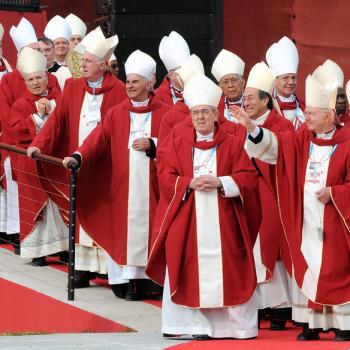We saw The Avengers, the movie that’s setting box office records. We went whole hog, springing for the version in 3-D AND Imax.
Like other comic book movies, it was mostly what Aristotle in his Poetics called “spectacle.” Movies today go all out with high-tech special effects. They can be fun to watch. (Though frankly I have not yet seen a new generation 3-D flick that made satisfying use of that technology, including this one. A trailer for the new Spider Man movie was more promising, showing a deeper field of vision than the usual flatness with a few things jumping out at you. I didn’t think the Imax version of “The Avengers” added that much either.) Anyway, the overall spectacle of “The Avengers” was fun. But as Aristotle goes on to say, spectacle is the lowest level of dramatic art.
In addition to spectacle, though, unlike many comic book movies, “The Avengers” also had interesting characters, well-rendered and, in what is often considered optional for the genre, well-acted. “The Avengers” put serious actors like Mark Ruffalo and Scarlett Johannsen in silly superhero costumes. But it paid off! The computer-enhanced Ruffalo–who was sensitive and angst-ridden as Bruce Banner– made a great Incredible Hulk. One of my favorite parts of the movie was when Scarlett Johannsen, as the Black Widow, took a call on her cell while she was on the verge of being tortured and complained to the caller, “I’m working!”, going on to thrash the Russian interrogator while she was still tied up in her chair.











